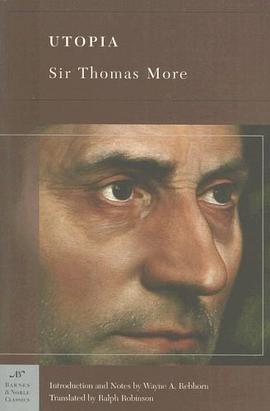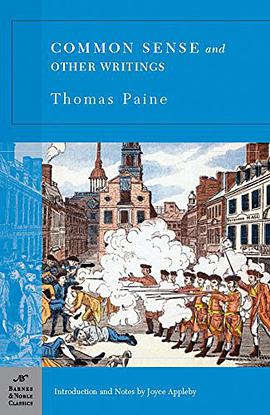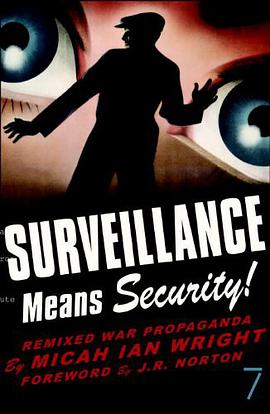
具体描述
Utopia , by Sir Thomas More , is part of the Barnes & Noble Classics series, which offers quality editions at affordable prices to the student and the general reader, including new scholarship, thoughtful design, and pages of carefully crafted extras. Here are some of the remarkable features of Barnes & Noble Classics :
All editions are beautifully designed and are printed to superior specifications; some include illustrations of historical interest. Barnes & Noble Classics pulls together a constellation of influencesbiographical, historical, and literaryto enrich each reader's understanding of these enduring works. 0in 0in 0pt">one of the most influential books in the Western philosophical and literary tradition, Sir Thomas More ’s Utopia appeared in 1516. The formidable Henry VIII had recently assumed the throne in England, and conflicting ideas about religion were fueling the Reformation throughout Europe. A scathing satire, Utopia was hugely successful and vaulted More to the forefront of the growing humanist movement. The story of Utopia is told by a mysterious sailor named Raphael Hythloday, who travels to the New World with the Italian explorer Vespucci and remains at a fort built at the farthest point reached. From there, he discovers a strange island kingdom named Utopia, a pagan and communist city-state in which language, social customs, dress, architecture, and education are identical throughout the country’s fifty-four cities. The Utopians have eliminated wealth, the nobility, and currency. Labor and goods are distributed equally and property is held in common. And there are no monasteries, alehouses, or academies to tempt a person to withdraw from society. Given More’s satiric leanings and eventual execution, is Utopia simply an attack on Europe’s wickedness? or is it a philosophical tract extolling the ideal way to live? Ultimately, Utopia navigates a course between the desire to create perfection and the pragmatic understanding that perfection, given the fallibility of mankind, is impossible. Wayne A. Rebhorn is Celanese Centennial Professor of English at the University of Texas at Austin. He has written extensively on Renaissance literature in English, Italian, French, Spanish, and Latin, on authors from Boccaccio through More and Shakespeare down to Milton.
作者简介
目录信息
读后感
乌托邦人并不是真正的“人”,只是发展阶段比较高的“人”。他们还有宗教,乌托邦人还是作为一个整体来面对神与自然、面对他人、面对自己。乌托邦人的爱本能很强烈,死本能很萎靡。因此战争与破坏并不能给他们带来快感。他们追求健康、和谐的生活,正是里比多的平衡状态。 乌...
评分总是使得一个国家变成地狱的,恰恰是人们试图将其变成天堂。 ——F•荷尔德林 我们明明是怀揣着充分的热情和120%的努力去投入新中国建设,为何最后却得到这般蹉跎的结果?我们明明以为自己在修筑一条通往幸福与繁荣的道路,...
评分最近花了两天的时间,终于把莫尔的《乌托邦》看完了。之所以看她,是冲着这本书的名头去的,毕竟,经典书目啊,还是想一睹风采。 书并不厚,仅一百五十来页,较之于那些动辄五百多页的大部头来说,此书可谓袖珍了。胡凤飞译本,北京出版社。译文较为朴实,通俗易懂...
评分有一部电视剧名叫《爱在哈佛》(2004),在哈佛法学院的课上,法学教授问一名学生:What novel has deeply impressed your mind?那名学生愣了一下回答说Utopia by Thomas More。教授扬了扬眉头说道:It is a book which every judicial person must read,what part of the bo...
评分最近花了两天的时间,终于把莫尔的《乌托邦》看完了。之所以看她,是冲着这本书的名头去的,毕竟,经典书目啊,还是想一睹风采。 书并不厚,仅一百五十来页,较之于那些动辄五百多页的大部头来说,此书可谓袖珍了。胡凤飞译本,北京出版社。译文较为朴实,通俗易懂...
用户评价
相关图书
本站所有内容均为互联网搜索引擎提供的公开搜索信息,本站不存储任何数据与内容,任何内容与数据均与本站无关,如有需要请联系相关搜索引擎包括但不限于百度,google,bing,sogou 等
© 2026 qciss.net All Rights Reserved. 小哈图书下载中心 版权所有





















